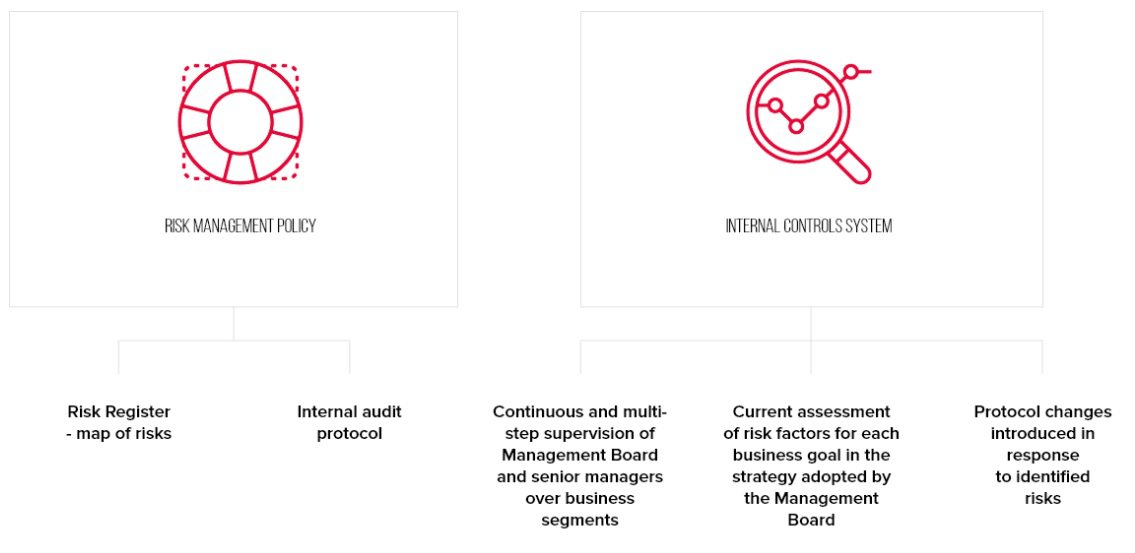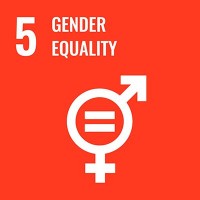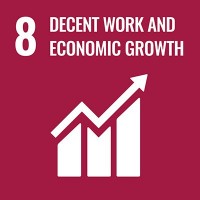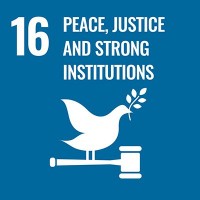Currently, there are internal control and risk management systems in place in the Agora Group:

The basic internal document regulating the area of risk management in Agora Group is “Risk Management Policy”. Its objective is to specify the principles and framework of the risk management process, to establish the responsibility of the participants of the process, and to define the basic concepts of risk. The Policy sets out: the division of responsibilities, the schedule of the risk management process, the risk categories and the principles of risk reporting by creating a register and a map of risks, and determining the acceptable level of risk.
The Group also implemented the internal audit regulations, as well as a register of risks and a map of risks. The map of risks is created on the basis of the register of risks identified in a given year. The Management Board determines which of the risks are crucial and reports them in the form of a map, which indicates the value of the effects of their potential materialisation and the probability of their occurrence for each of them. In addition, the factors that limit both these effects and that probability are determined. For each of the key risks, it is indicated whether the data is sufficiently limited, i.e. whether a given part of the risk is acceptable to the Agora Group.
THE MAIN ELEMENTS OF THE INTERNAL CONTROL SYSTEM ARE COMPONENTS OF THE AGORA GROUP’S BUSINESS PROCESSES AND INCLUDE, AMONG OTHERS:
- procedures and regulations concerning, among others: delegation of powers and authorisation of decisions, evaluation of business projects, rules for incurring expenses (budgets and approval thresholds), recording and processing of business transactions, processes of reporting and control of transactions and results of individual areas of activity;
- reviews of IT systems supporting the implementation of business processes and monitoring the operation of the systems themselves.
The management implements specific tasks resulting from the internal control system and the constant surveillance over its effectiveness as part of the management of the Group’s individual segments. The Agora Group has the Internal Audit Department, which primarily performs internal audit activities, understood as independent activities, objectively assessing the effectiveness aimed at adding value and improving the operations of the audited entity or the Agora Group as a whole. The rules governing the functioning of the unit are set out in the Internal Audit Regulations adopted by the Management Board and the Audit Committee of the Supervisory Board. Pursuant to the best practices, the Internal Audit Department reports back to the Management Board and the Audit Committee operating within the Supervisory Board. During the year, the Head of the Department coordinates the risk management process set out in the Risk Management Policy. In accordance with the Internal Audit Regulations, on the basis of, i.a., the results of the risk management process, an audit plan is being prepared, subject to the approval of the Audit Committee. Upon completion of the audit, an audit report is generated with recommendations and proposed process improvements.
The Audit Committee operating within the Supervisory Board holds regular meetings with the Company's internal auditor during which it discusses audit reports and actions taken to mitigate the identified risks. On that basis, the implementation of the annual internal audit plan is also monitored. In 2021, nine such meetings were held, and six meetings were held in 2020.
The above-mentioned risk management system refers to the risks identified as crucial; in particular these are risks related to the operating activity of the Group. Additionally, the Agora Group identifies and takes into account the ESG (Environmental, Social, Governance) risks, i.e. those relating to social, employee-related, environmental, human rights and anti-corruption issues. Risks from this group are managed by substantive units, responsible for a given area.
All identified risks are regularly analysed, monitored and managed, while following industry standards and guidelines, as well as implementing relevant internal policies and procedures. Thanks to this, it is possible to minimise or eliminate the identified risks, and effectively manage the organisation. The various parts of the report, dealing with the approach to governance, set out the procedures and policies aimed at eliminating non-financial risks.
The President of the Company together with the member of the Management Board responsible for ESG issues is responsible for managing non-financial risks, including risks related to climate change.
The main risks identified in 2021 are presented in the table below.
AGORA
AGORA
THE MAIN ELEMENTS OF THE INTERNAL CONTROL SYSTEM ARE COMPONENTS OF THE AGORA GROUP’S BUSINESS PROCESSES AND INCLUDE, AMONG OTHERS:
- procedures and regulations concerning, among others: delegation of powers and authorisation of decisions, evaluation of business projects, rules for incurring expenses (budgets and approval thresholds), recording and processing of business transactions, processes of reporting and control of transactions and results of individual areas of activity;
- reviews of IT systems supporting the implementation of business processes and monitoring the operation of the systems themselves.
The management implements specific tasks resulting from the internal control system and the constant surveillance over its effectiveness as part of the management of the Group’s individual segments. The Agora Group has the Internal Audit Department, which primarily performs internal audit activities, understood as independent activities, objectively assessing the effectiveness aimed at adding value and improving the operations of the audited entity or the Agora Group as a whole. The rules governing the functioning of the unit are set out in the Internal Audit Regulations adopted by the Management Board and the Audit Committee of the Supervisory Board. Pursuant to the best practices, the Internal Audit Department reports back to the Management Board and the Audit Committee operating within the Supervisory Board. During the year, the Head of the Department coordinates the risk management process set out in the Risk Management Policy. In accordance with the Internal Audit Regulations, on the basis of, i.a., the results of the risk management process, an audit plan is being prepared, subject to the approval of the Audit Committee. Upon completion of the audit, an audit report is generated with recommendations and proposed process improvements.
The Audit Committee operating within the Supervisory Board holds regular meetings with the Company's internal auditor during which it discusses audit reports and actions taken to mitigate the identified risks. On that basis, the implementation of the annual internal audit plan is also monitored. In 2021, nine such meetings were held, and six meetings were held in 2020.
The above-mentioned risk management system refers to the risks identified as crucial; in particular these are risks related to the operating activity of the Group. Additionally, the Agora Group identifies and takes into account the ESG (Environmental, Social, Governance) risks, i.e. those relating to social, employee-related, environmental, human rights and anti-corruption issues. Risks from this group are managed by substantive units, responsible for a given area.
All identified risks are regularly analysed, monitored and managed, while following industry standards and guidelines, as well as implementing relevant internal policies and procedures. Thanks to this, it is possible to minimise or eliminate the identified risks, and effectively manage the organisation. The various parts of the report, dealing with the approach to governance, set out the procedures and policies aimed at eliminating non-financial risks.
The President of the Company together with the member of the Management Board responsible for ESG issues is responsible for managing non-financial risks, including risks related to climate change.
The main risks identified in 2021 are presented in the table below.
AGORA
Główne ryzyka zidentyfikowane w 2021 r.
|
AREA |
MAIN RISKS IN THE AREA |
|
ECONOMIC AND LEGAL |
The main risks in this area are:
- the macroeconomic risk related to the economic situation and the demand for products and services (Agora and the Group)
- decreased revenues from advertising and cinema activity due to seasonality or administrative decisions (Agora and the Group)
- changes in the structure of the advertising market (Agora and the Group)
- global trends in the media consumption model (Agora and the Group)
- changing preferences of consumers and advertisers (Agora and the Group)
- the risk related to conducting licensed activity (radio) (only the Group)
- the risk of acting in violation of the law and internal regulations (Agora and the Group)
- the risk of violent legislative changes (Agora and the Group)
|
|
EMPLOYEE |
Employee-related issues are one of the most important areas of responsibility, that is why Agora Group conducts activities aimed at minimising the following risks:
- the risk of losing key employees and important competences (Agora and the Group)
- the risk of high staff turnover (costs of recruiting new employees) (Agora and the Group)
- the risk of unequal treatment of employees (in terms of remuneration, access to training, promotion, etc.) (Agora and the Group)
- the risk of collective disputes with employees and of a conflict between the employer and an employee (Agora and the Group)
|
|
HUMAN RIGHTS |
Identified risks related to human rights in the Agora Group:
- undesirable behaviour in the workplace (discrimination, mobbing) (Agora and the Group)
- violation of the freedom of association and collective bargaining (Agora and the Group)
- gross violation of human rights among the suppliers of the Agora Group (Agora and the Group)
|
|
ENVIRONMENTAL, INCLUDING CLIMATIC RISKS |
In the environmental aspect, the Agora Group takes into account the risks associated with its activities, primarily as part of its activities in the fields of printing, cinema, catering, outdoor and administration. The main risks include:
- the operational risk related to the current activities and negative environmental impact (Agora and the Group)
- higher operating costs caused by increased prices of raw materials (Agora and the Group)
- the regulatory risk related to the adaptation of activities to global climate change regulations (Agora and the Group)
|
|
SOCIAL ACTIVITIES |
The impact on local communities in all Agora Group locations and involvement in social, cultural, sports and charity projects are key issues in the area of corporate social responsibility. Due to the intensity of social involvement, the following risks are possible:
- the risk of lack of transparency in the allocation of funds (Agora and the Group)
- the violation of law and human rights due to the lack of due diligence in the selection of a social partner (Agora and the Group)
- the risk of conflict of interests (Agora and the Group)
- the risk of obtaining results that are disproportionate to the funds spent (Agora and the Group)
- the risk of loss of image as a result of cooperation with a business partner acting to the detriment of society/the environment (Agora and the Group)
|
|
SUPPLY CHAIN AND CUSTOMER RELATIONS |
The main areas of product liability in the Agora Group concern marketing communications, complaint procedures, as well as the protection of customers' privacy and their personal data. The most significant risks are the following:
- the risk of violation of the law or regulations, e.g. data leak or unauthorised use of data and content. This may result in reputational and financial risks (penalties, fines) (Agora and the Group)
- the risk of credibility of suppliers (Agora and the Group)
- the risk of liability in the entire supply chain (Agora and the Group)
- the risk related to improper protection of the recipients' personal data (Agora and the Group)
- dependence on a small group of suppliers (Agora and the Group)
|
|
PREVENTING CORRUPTION AND FRAUD |
The main risks in this area are:
- the risk of conflict of interests (Agora and the Group)
- the risk of abuse in relations with business partners and suppliers (Agora and the Group)
- the risk of corrupt behaviour (also among suppliers and business partners) (Agora and the Group)
|
|
MEDIA ACTIVITY |
In the modern world, the media play the key informative and opinion-making role. All social and economic changes are accompanied by the transformation of the mass media and the dynamic development of the social media.
Media industry challenges:
- reliability of sources (Agora and the Group)
- independence (Agora and the Group)
- transparency (Agora and the Group)
- reliability (Agora and the Group)
- fact checking and the fight against disinformation (Agora and the Group)
Risks related to media activities:
- the risk of improper information management, public disclosure of contrary/unverified/false information (Agora and the Group)
- lack of transparency (Agora and the Group)
- loss of public trust (Agora and the Group)
Risks related to licensed activities:
- loss of licence (only the Group)
- imposition of a penalty (Agora and the Group)
- decisions of the Office of Competition and Consumer Protection (UOKiK) recognising the company's practices as restricting competition or violating the Polish provisions on competition and consumer protection (Agora and the Group)
- unfavourable rulings in administrative or court proceedings (Agora and the Group)
|
|
IT RISKS |
Among the main risks associated with IT infrastructure are the following:
- system efficiency (Agora and the Group)
- system security (cyber-security) (Agora and the Group)
|
|
RISKS RELATED TO THE EFFECTS OF THE COVID-19 PANDEMIC |
The main risks in this area are:
- economic consequences of the pandemic (Agora and the Group)
- reducing the budget of customers and business partners resulting from the COVID-19 pandemic (Agora and the Group)
- changes in the media consumption (Agora and the Group)
- acceleration of digitization processes (Agora and the Group)
- structural changes on the advertising market (Agora and the Group)
- new purchasing behaviours (Agora and the Group)
- restrictions on the supply of products sold (only the Group)
- regulatory restrictions on business operations (only the Group)
|
* Detailed identification and analysis of climate risks is described in Part: Carbon footprint and environment impact, Where the identification and analysis of climate risks and the resulting threats and opportunities are presented in accordance with the AXIS methodology (Amplification, eXclusion, Intensification , Seizure), which was carried out by the Agora Group in 2021.
More information on the risks affecting the results of operations and financial activities of the Agora Group can be found at agora.pl/en/reports in the Agora Group's 2021 financial statements.







